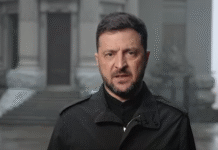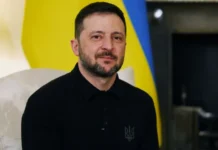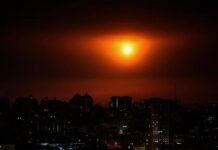Brussels, 5 March 2022 (TDI): NATO Foreign Ministers met in Brussels for an extraordinary conference to discuss the increasing crisis in Ukraine. The Foreign Ministers of Finland and Sweden, as well as the European Union’s High Representative, were present.
#NATO Foreign Ministers & #Finland, #Sweden & the #EU addressed #Russia‘s brutal invasion of #Ukraine, which the whole world condemns. We call on President Putin to stop this war immediately. He tried to divide us, but NATO is more united, more determined & stronger than ever. pic.twitter.com/c5Up9UKKNz
— Jens Stoltenberg (@jensstoltenberg) March 4, 2022
Dmytro Kuleba, Ukraine’s Foreign Minister sent a video message to his counterparts, in which he highlighted the country’s catastrophic humanitarian disaster.
Ministers denounced Russia’s unprovoked invasion of Ukraine and voiced sympathy and support for the Ukrainian people and military. They discussed NATO’s imminent crisis reaction.
❝President Putin has failed to divide us.
NATO is more united, more determined, and stronger than ever❞🗣️ | Secretary General @JensStoltenberg #NATO | #ForMin
— NATO (@NATO) March 5, 2022
NATO is deploying its Response Force for the first time, with over 130 planes on high alert and over 200 ships from the High North to the Mediterranean, in addition to the thousands of additional troops already dispatched to the Alliance’s eastern flank.
Secretary-General Stoltenberg stated, “We will continue to do all necessary to preserve and defend every inch of NATO territory.” Foreign Ministers also emphasized the need of assisting countries that may be affected by the conflict in Ukraine, such as Georgia and Bosnia and Herzegovina.
❝President Putin has failed to divide us.
NATO is more united, more determined, and stronger than ever❞🗣️ | Secretary General @JensStoltenberg #NATO | #ForMin
— NATO (@NATO) March 5, 2022
Stoltenberg stated, “We are not a victim to this war,” but added that NATO has “a responsibility to ensure it does not escalate and expand beyond Ukraine.” That would be considerably more hazardous and catastrophic.”
Ministers had the chance to discuss the longer-term consequences of Russia’s aggressiveness for Euro-Atlantic security during the meeting. “Russia’s aggression has established a new paradigm for our security,” the Secretary-General said, “where fundamental values are fought via the use of force.”
Ministers agreed that NATO’s long-term relationship with Russia has fundamentally changed, but they also agreed that diplomatic channels must stay open to avoid any inadvertent escalation, misunderstanding, or mistake.
Jens Stoltenberg attended an urgent meeting of the European Union’s Foreign Affairs Council on the afternoon of March 4, 2022. The Secretary-General used this meeting to have an informal chat with EU Foreign Affairs Ministers.
They discussed the situation in Ukraine and updated them on the NATO Ministers’ deliberations earlier that day. The EU and NATO are unified in their censure of Russian aggression in Ukraine.








